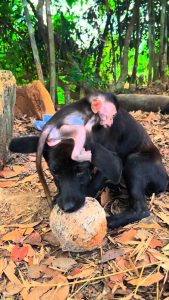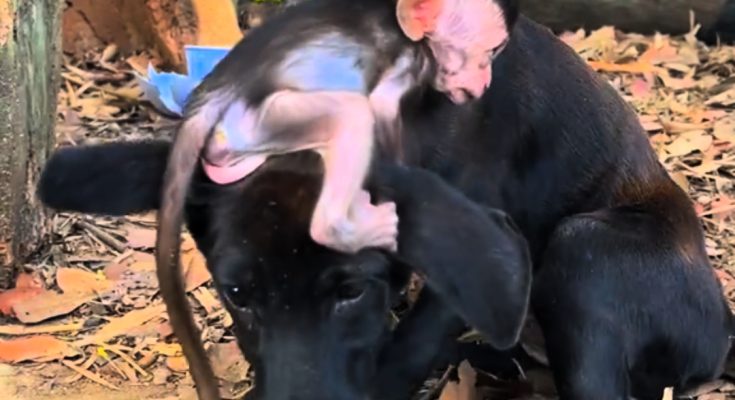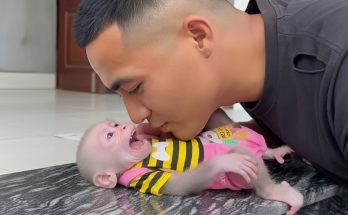
The orphanage was quiet that winter morning, the air thick with the smell of powdered milk and faded paint. In one corner of the nursery, under a worn patchwork quilt, lay a baby no more than ten months old. Her name was Amara, though no one really used it. The nurses called her “the quiet one.” She rarely cried. Her brown eyes watched everything with solemn curiosity, too wide and too knowing for someone so small.
She had been brought to the orphanage at just a few days old—wrapped in an old towel, placed at the gate before sunrise. No note. No name. Just the faint smell of someone who had held her once, then let her go.
Babies are supposed to have someone—someone to hold them, hum to them, smile when they reach for a finger. Amara had none of that. The staff were kind enough, but busy. Her bottle came on schedule, her diaper was changed, and she was given a soft cot in the corner. But what she needed most—warmth, closeness, love—was missing, as if the world had forgotten to assign her a person to belong to.
One rainy afternoon, everything changed.
A volunteer arrived, soaked and flustered, carrying a tiny, shivering bundle wrapped in an old scarf. “Found her behind the market,” he said, unfolding the scarf to reveal a trembling golden-brown puppy—barely a month old, all ribs and fear. The orphanage didn’t allow animals, but it was too cold to turn the puppy away that night. So, the little creature was brought to the nursery to stay just one night.
That night turned into forever.
The next morning, Amara was found curled beside the puppy, her chubby arm slung protectively over its back, her cheek pressed into its fur. For the first time since arriving, she had slept peacefully—no cries, no restless tossing. Just quiet, complete stillness, as though something inside her had finally found its missing piece.
The caretakers watched in awe as the days passed. Amara, who had never laughed before, giggled when the puppy licked her toes. She babbled to it in her baby language, mimicking its yawns, crawling after it on her hands and knees. She called it “Ma,” her first word. They named the puppy Luma.
It was Luma who taught Amara affection—how to nuzzle, how to wait at the door, how to feel safe in someone’s presence. The puppy would curl up beside her at naptime, would gently tug her blanket over her with its teeth. When Amara cried, Luma would place a paw on her chest, or whine softly until she stopped.
To anyone watching, the bond seemed backwards: a baby being comforted by a dog. But in the quiet hours of that nursery, where the world outside had long forgotten two little souls, something sacred had formed—something deeper than instinct or routine. Love.
They were both orphans in different ways, stitched together by loneliness and saved by each other. Amara began to thrive. She learned to sit up, then to walk, always holding a fistful of Luma’s fur for balance. She laughed more, cried less. And Luma grew healthy, her eyes bright, her steps bouncy, as if she too had found a reason to stay alive.
Visitors to the orphanage would often stop and stare, some smiling, some wiping away tears. A baby and a puppy—one orphaned by people, the other by circumstance—acting as if they had always belonged to each other. No language between them, just touch, warmth, presence. A mother and child, in the only form either had ever known.
In a world that had denied them both the comfort of family, they created their own. Love, after all, doesn’t always come in the shape we expect. Sometimes, it comes on four legs and with a wagging tail. And sometimes, it saves us before we even know we need saving.



